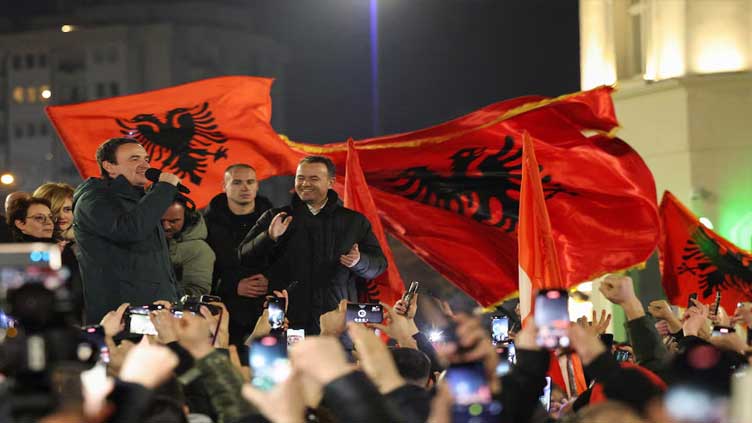Kosovo's ruling party wins election but loses majority

World
Kosovo's ruling party wins election but loses majority
PRISTINA (Reuters) - Kosovo's ruling Vetevendosje party came first in Sunday's parliamentary election, but fell short of an outright majority needed to rule without coalition partners, preliminary results showed on Monday.
Despite a drop in support from a 2021 vote, the result sets up Prime Minister Albin Kurti to lead the next government in the small Balkan country where politics are dominated by the relationship with neighbouring Serbia and Serbs within its borders.
A government led by Kurti, a leftist and Albanian nationalist, is likely to continue policies to extend government control over the north, where about 50,000 ethnic Serbs live, many of whom refuse to recognise Kosovo's independence from Serbia in 2008.
That worries moderates who fear a return to the ethnic violence that has blighted the region in recent years.
Vetevendosje won 41.3% of votes with 88% of ballots counted, down from more than 50% in the 2021 poll that brought a Vetevendosje-led coalition to power, results from the election commission showed. The opposition Democratic Party of Kosovo was second with 21.8% and the Democratic League of Kosovo party had 17.8%.
"Preliminary results show one true, exact and clear thing, and this is that the Vetevendosje movement has won the elections of February 9, 2025," Kurti told supporters in the capital Pristina as crowds let off fireworks, banged drums and waved Albanian flags.
But in the same speech, Kurti insulted potential coalition partners by saying the opposition were "animals" and "thieves" ready to make a deal "with the devil" against his government.
During an acrimonious election campaign, in which fines for misconduct trebled over the 2021 poll, Kurti said he would refuse to rule with a coalition.
Pristina-based political analyst Belgzim Kamberi told Reuters that Kurti would have to make a deal with a second or third party or allow the opposition to form the new government.
"Kosovo has entered into an institutional instability," he said.
Kosovo, which is majority ethnic Albanian, is Europe's newest country, and one of its poorest. It gained independence from Serbia in 2008 with backing from the United States after a 78-day NATO bombing campaign against Serbian forces in 1999.
The election campaign saw debates over corruption, crime, health and education, but looming in the background is the situation in the north, where Kurti's moves to reduce ethnic Serbs' autonomy have stoked tensions and isolated it from the European Union and the United States.
The EU placed economic curbs on the country in 2023 for its role in the tensions, cutting at least 150 million euros ($155 million) in funding, Reuters found.


